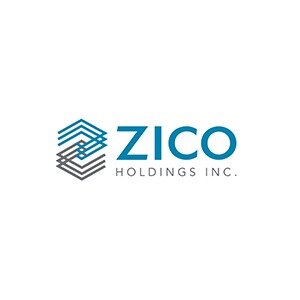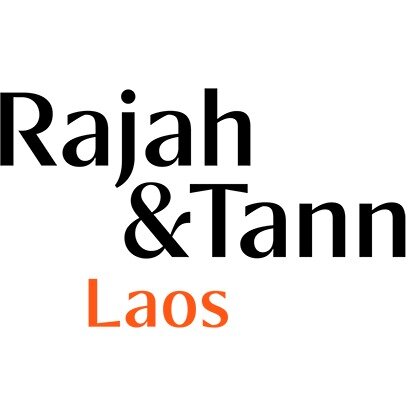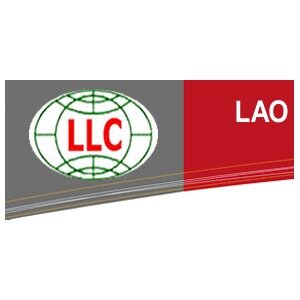Best Debt Capital Markets Lawyers in Laos
Share your needs with us, get contacted by law firms.
Free. Takes 2 min.
Or refine your search by selecting a city:
List of the best lawyers in Laos
About Debt Capital Markets Law in Laos
Debt Capital Markets (DCM) refer to the segment of financial markets where companies, governments, and other entities raise funds through the issuance of debt securities, such as bonds and notes. In Laos, the DCM is gradually developing as the government and corporate entities seek long-term financing to support infrastructure projects, enterprise expansion, and government expenditures. Regulatory frameworks have been implemented to foster transparency, investor protection, and efficient market practices. The Lao Securities Exchange (LSX), established in 2010, serves as the main platform for trading securities, including corporate and government bonds.
Why You May Need a Lawyer
Navigating the Debt Capital Markets in Laos can be complex due to evolving regulatory requirements and market practices. Individuals, corporate entities, foreign investors, and financial institutions may require legal advice in various circumstances, including:
- Structuring and issuance of corporate or government bonds
- Reviewing and negotiating bond purchase agreements or trust deeds
- Understanding listing requirements on the Lao Securities Exchange
- Ensuring compliance with the Bank of Lao PDR and Ministry of Finance regulations
- Managing cross-border investments and foreign exchange controls
- Handling defaults, restructuring, or enforcement of debt securities
- Navigating new tax implications related to interest income or capital gains
- Conducting due diligence for investors or underwriters
- Resolving disputes related to DCM transactions
Local Laws Overview
Several key laws and regulations govern the Debt Capital Markets in Laos. The main legislative and regulatory instruments include:
- Securities Law - Provides the legal framework for the issuance, offering, and trading of securities in Laos, including debt instruments.
- Regulations of the Lao Securities Exchange (LSX) - Outline listing procedures, disclosure obligations, and ongoing compliance for bond issuers and intermediaries.
- Bank of Lao PDR Regulations - Govern interest rates, foreign exchange transactions, and cross-border capital flows.
- Decrees by the Ministry of Finance - Address public debt issuance, guarantees, and government bond programs.
- Tax Laws - Regulate tax treatment on interest income, withholding tax for non-resident investors, and capital gains tax on securities transactions.
Issuers and investors are required to adhere strictly to these laws. Non-compliance may lead to fines, loss of listing status, and other legal consequences.
Frequently Asked Questions
What are the main types of debt securities available in Laos?
The main types of debt securities in Laos are government bonds, corporate bonds, and short-term notes. These instruments may have different maturities and interest payment structures.
Who can issue debt securities in the Lao market?
Both government entities and private companies can issue debt securities, provided they meet regulatory and disclosure requirements set by the Lao Securities Exchange and other relevant authorities.
Is foreign participation allowed in Laos's debt capital market?
Yes, foreign investors can participate, subject to foreign exchange restrictions and other regulations imposed by the Bank of Lao PDR and Ministry of Finance.
Are there restrictions on repatriating funds related to debt securities investments?
Yes, there are foreign exchange controls in Laos. Repatriation of investment returns must comply with the regulations of the Bank of Lao PDR, which may require approvals and documentation.
What is the process for listing a bond on the Lao Securities Exchange?
Issuers must submit an application, provide a prospectus, fulfill minimum capital requirements, and comply with ongoing disclosure obligations. Approval from the LSX and relevant regulators is mandatory.
Are there tax implications for income earned from bonds in Laos?
Yes, interest income from bonds and capital gains may be subject to income tax and withholding tax. Rates and exemptions can vary depending on the type of issuer and the investor’s residency status.
How long does it typically take to issue and list a bond in Laos?
The process may take several months, depending on regulatory approvals, due diligence, documentation, and listing requirements.
What happens in case of a default on a bond?
Bondholders have legal recourse under the Securities Law and the terms of the bond agreement, such as initiating enforcement proceedings or seeking restructuring with the issuer.
Do debt securities in Laos carry a credit rating?
The credit rating system in Laos is in its early stages. Some government and larger corporate issuances may carry ratings, often with input from regional or international agencies.
Can a lawyer represent both an issuer and an investor?
While legally permissible, it may present a conflict of interest. Most reputable law firms or lawyers will represent only one party in a transaction to ensure impartial legal advice.
Additional Resources
Consider consulting the following bodies and resources for further information:
- Lao Securities Commission Office (LSCO) - Oversees and regulates the securities market, including DCM activities
- Lao Securities Exchange (LSX) - Provides information on listed debt securities and regulatory guidelines
- Bank of Lao PDR - Issues regulations on cross-border transactions and foreign exchange controls
- Ministry of Finance - Sets policy for government debt issuance
- Laos Bar Association - Directory of licensed legal professionals in Laos
- Major local and international law firms with expertise in DCM
- Financial advisors and accounting firms familiar with securities regulation in Laos
Next Steps
If you require legal assistance in Debt Capital Markets in Laos, consider the following steps:
- Identify your objectives and gather any relevant documentation related to the proposed transaction or legal question
- Research and select a law firm or lawyer with demonstrated experience in DCM in Laos
- Schedule an initial consultation to discuss your needs, regulatory requirements, and potential risks
- Work collaboratively with your legal advisor to ensure compliance with all applicable laws and to protect your interests
- Stay informed about regulatory changes by following updates from regulatory bodies and seeking periodic legal reviews
Addressing debt capital markets matters with professional legal support can help you avoid costly mistakes and safeguard your investments or business ventures in Laos.
Lawzana helps you find the best lawyers and law firms in Laos through a curated and pre-screened list of qualified legal professionals. Our platform offers rankings and detailed profiles of attorneys and law firms, allowing you to compare based on practice areas, including Debt Capital Markets, experience, and client feedback.
Each profile includes a description of the firm's areas of practice, client reviews, team members and partners, year of establishment, spoken languages, office locations, contact information, social media presence, and any published articles or resources. Most firms on our platform speak English and are experienced in both local and international legal matters.
Get a quote from top-rated law firms in Laos — quickly, securely, and without unnecessary hassle.
Disclaimer:
The information provided on this page is for general informational purposes only and does not constitute legal advice. While we strive to ensure the accuracy and relevance of the content, legal information may change over time, and interpretations of the law can vary. You should always consult with a qualified legal professional for advice specific to your situation.
We disclaim all liability for actions taken or not taken based on the content of this page. If you believe any information is incorrect or outdated, please contact us, and we will review and update it where appropriate.
Browse debt capital markets law firms by city in Laos
Refine your search by selecting a city.












